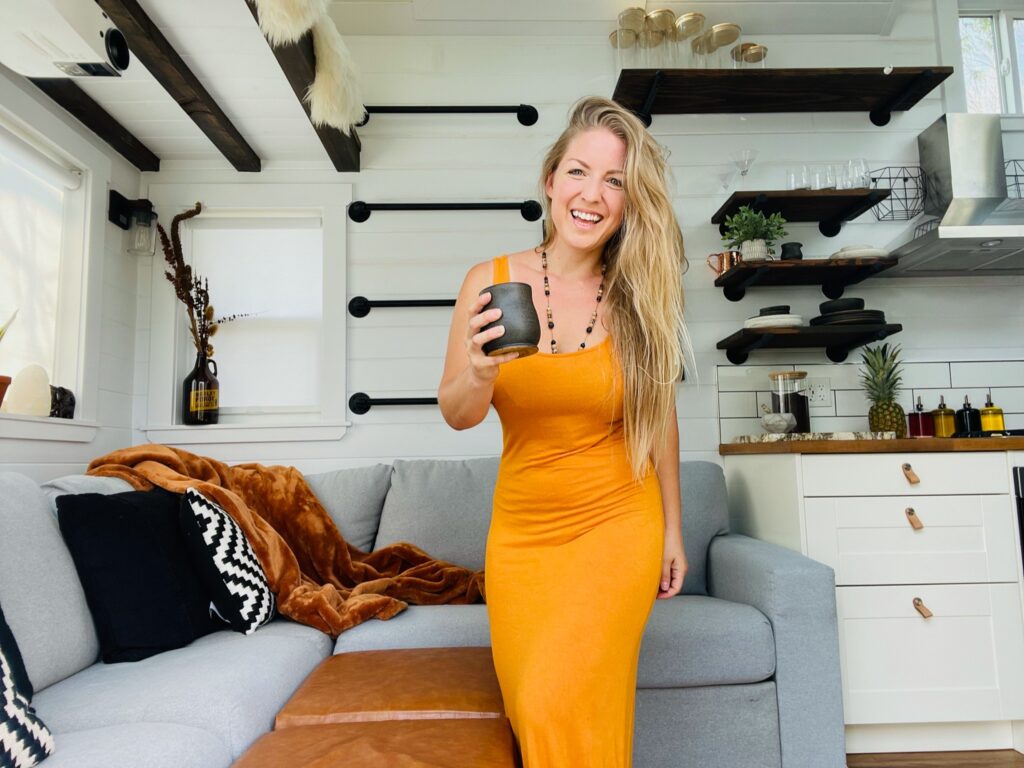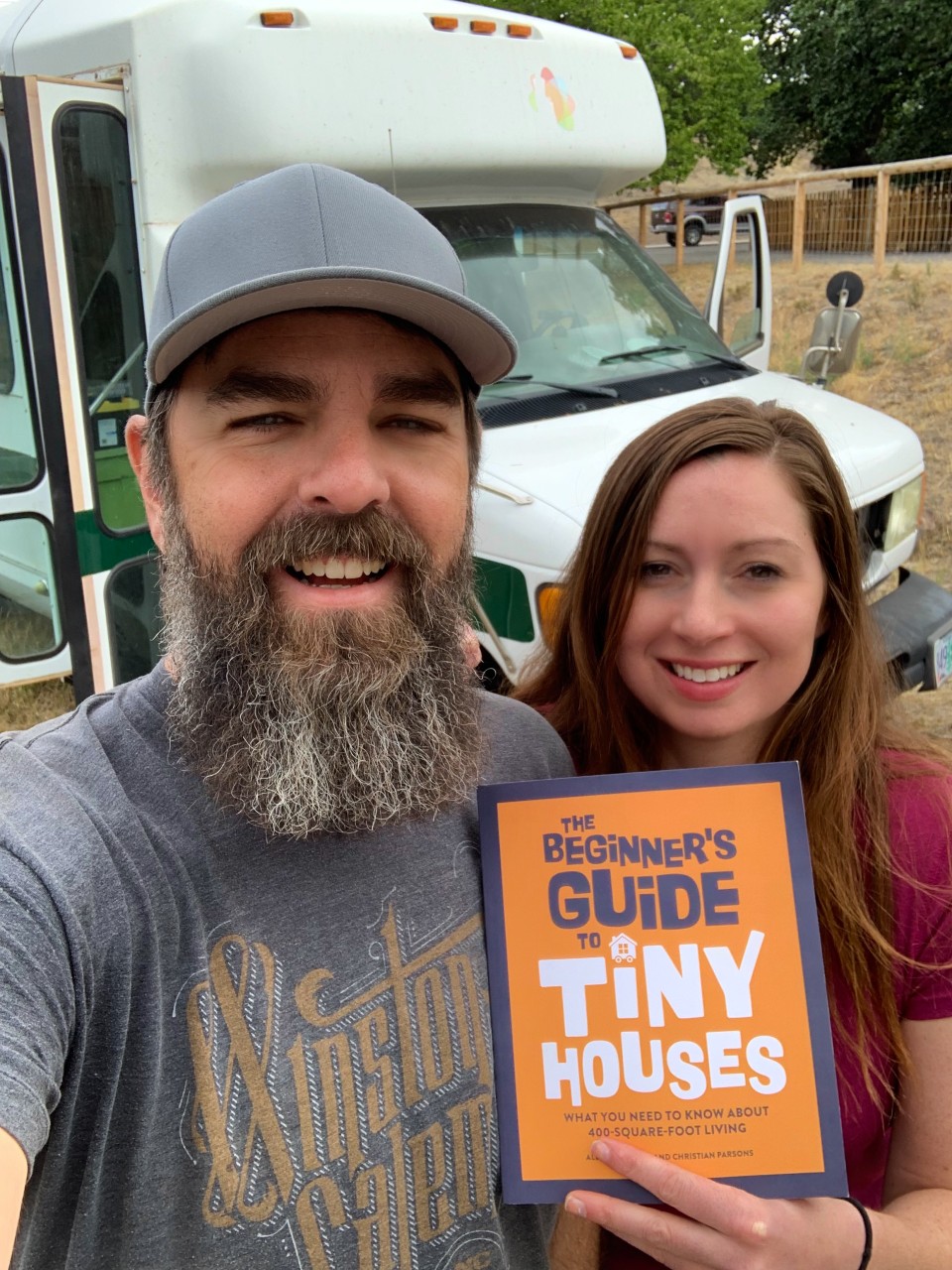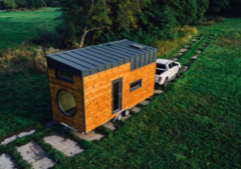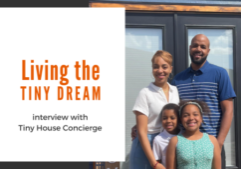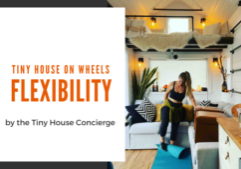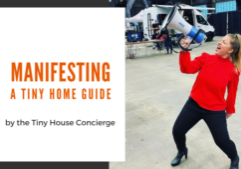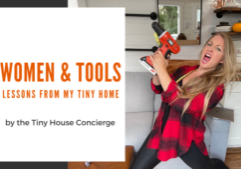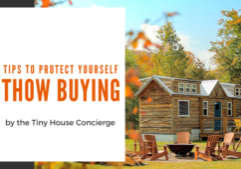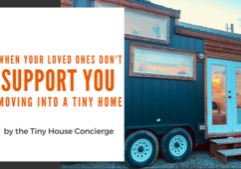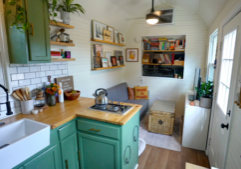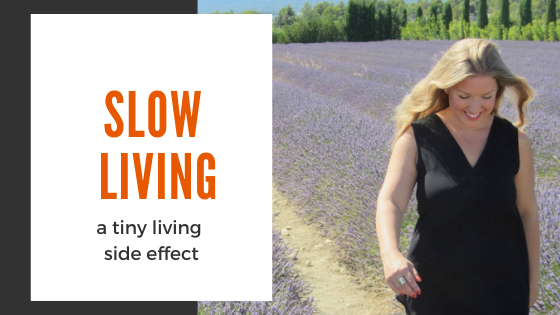
How Tiny Houses Facilitate Slow Living, and How Slow Living will Save the World
Slow living means living more sustainably, more locally, and enjoying more leisure. — Guest Post by The Tiny House Concierge
Hello Friends,
Let's talk slow living!
Tiny House Expedition was kind enough to have me back this week, and I am so happy to be reunited with you all! If you missed part I of this series, my name is Alaska, AKA The Tiny House Concierge. With this article, I am on a mission to put forth the notion that the tiny house movement could totally save the world—and make our lives fabulous in the process.
This article is a standalone, but it does tie in heavily with my previous one. If you haven't had a chance to check that one out, you can do so here.
I'm going to start by telling you a beautiful story, followed by an alarming one. Together we'll examine how American culture is leaving us vulnerable and ultimately evaluate how the tiny house movement could be perfectly positioned to save us all. Sound good? Excellent!
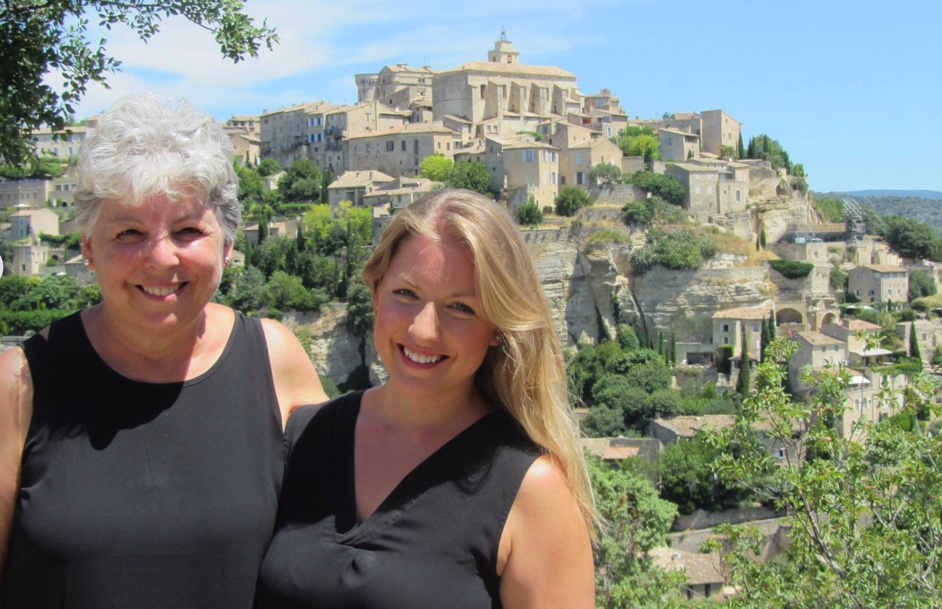
My first story takes place abroad.
In 2012 my mother and I went on an incredible trip to Europe. We attended an Italian culinary school, where we learned to source seasonal ingredients, measure with intuition, and cook with passion. We toured vineyards and met the cows responsible for the cheese that we snuck through customs on our way home.
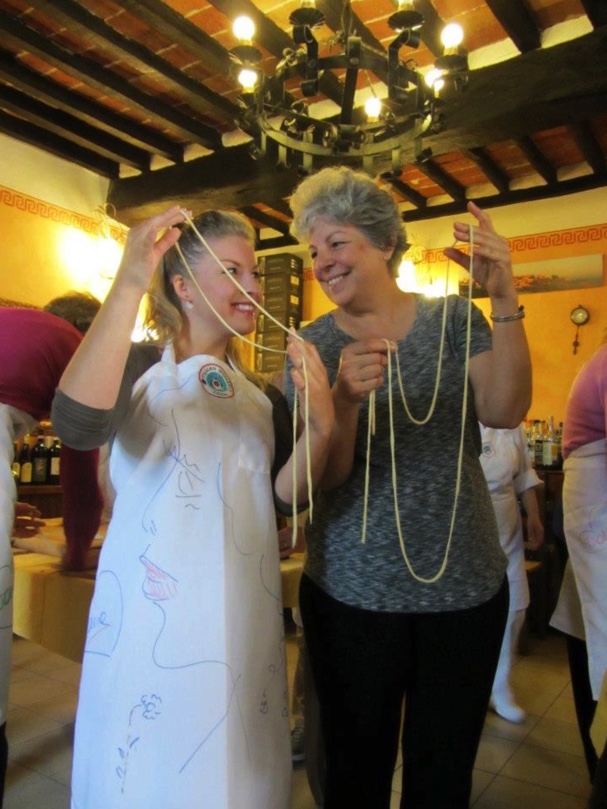 In Paris, I worked on my first novel while my mother read The New York Times. A plate of pastries sat between us: one for her, one for me, one to share, and one because after ordering, we discovered a fourth option that contained chilled espresso mousse. So. We woke up when we wanted to. We walked instead of taking taxis and ate lunch when we were hungry, and not because it was twelve o'clock. The last day of our trip found us having lunch at Le Bon Marché in Paris. The waiter had barely left the table when I began crying buckets into my niçoise salad. The reason:
In Paris, I worked on my first novel while my mother read The New York Times. A plate of pastries sat between us: one for her, one for me, one to share, and one because after ordering, we discovered a fourth option that contained chilled espresso mousse. So. We woke up when we wanted to. We walked instead of taking taxis and ate lunch when we were hungry, and not because it was twelve o'clock. The last day of our trip found us having lunch at Le Bon Marché in Paris. The waiter had barely left the table when I began crying buckets into my niçoise salad. The reason:
I couldn't believe the world was so beautiful; I wanted every person on Earth to know that feeling.
Like most Americans, I was raised in "hustle culture." Bigger, faster, better, and more- these were the words to live by. That day in the Parisian cafe, I felt the effects of something different for the first time, something I'd later learn was called slow living.
Now for the other story.
Nine months ago, a man bombed an AT&T cell tower in Nashville, Tennessee, on Christmas Day. I was only fifteen miles away at the time and instantly lost cell service.
From Christmas to New Year's, I basically went back in time to the '90s: I had to source a landline to make phone calls; I couldn't access the internet unless I was at home or a Starbucks; I couldn't use GPS; I had to source hard copy maps, and was incommunicado anytime I left the house.
The data was in: my ability to fend for myself was extremely limited.
I'd been left vulnerable because of all the ways my American values had left me dependent. Bigger, faster, better, and more have created some incredible things: the internet, the electrical grid, long-distance food supply chains, waste management, and Amazon- just to name a few. These things have allowed us to scale our lives and achieve unprecedented productivity levels, but they've also left us dependent on some massive systems. Don't get me wrong, I love Instacart as much as the next person, but I have to wonder if we're setting ourselves up to be Insta-screwed.
I mean, I hate to be the one to bring this up, but what if the internet goes down?
Friends: food, water, power, shelter, waste management, and healthcare are basic needs. When we outsource these things to the degree that we have, we put ourselves at risk. Not only that, but we lose the sense of well-being that comes from homemade cooking, knowing our neighbors, and having skill sets.
This is where I think the tiny house lifestyle—and the slow living it encourages—could totally save the world.
Before I go further, I want to state that I do not believe everyone needs to—or even should—live in a tiny house. If you have seven children, six Great Danes, and are an avid collector of antique dolls, maybe it's not for you. Unless, of course, you are a badass like Macy Miller.*
Here's the deal with the tiny house movement, though: it's a lifestyle, as much as it is a house. We have to overcome the narrative that we're powerless to change the way we live. We can make changes, and I completely support doing so from regular-sized homes if that's what works for you. Fair? No one panic.
So, what exactly is slow living, anyway?
Slow living is the lifestyle one begins to auto-embrace when they become a tiny houser. It's a lifestyle that challenges hustle culture, "the rat race," and our dependence on technology, among other things.
It's a lifestyle that grew out of Italy's Slow Food Movement, which began in the mid-1980s and sought to fight back against the fast-food industry by insisting that food production be SLOW: Sustainable, Local, Organic, and Whole. The movement also encouraged people to put effort into how food was consumed and highlighted the importance of atmosphere, company, and enjoyment of mealtimes.
Slow living came about as an offshoot movement and has evolved to include many definitions. The basics, however, are similar: that we live more sustainably, more locally, and that we enjoy more leisure.
That's great, but how does the tiny house lifestyle help us live more slowly?
I'm glad you asked. How about a couple more stories?
I bought a pineapple the other day that came from Brazil. It made me a little uneasy to think about how many miles lie in between me and the food I'm relying on for survival. I mean, hopefully, there will be no tropical storms, the international trade contracts will be upheld, the Brazilian government will enjoy stability, and Bob will show up to unload the pineapple truck, but if something doesn't go according to plan, I won't eat.**
Here's how a tiny house implements the slow living that could save us.
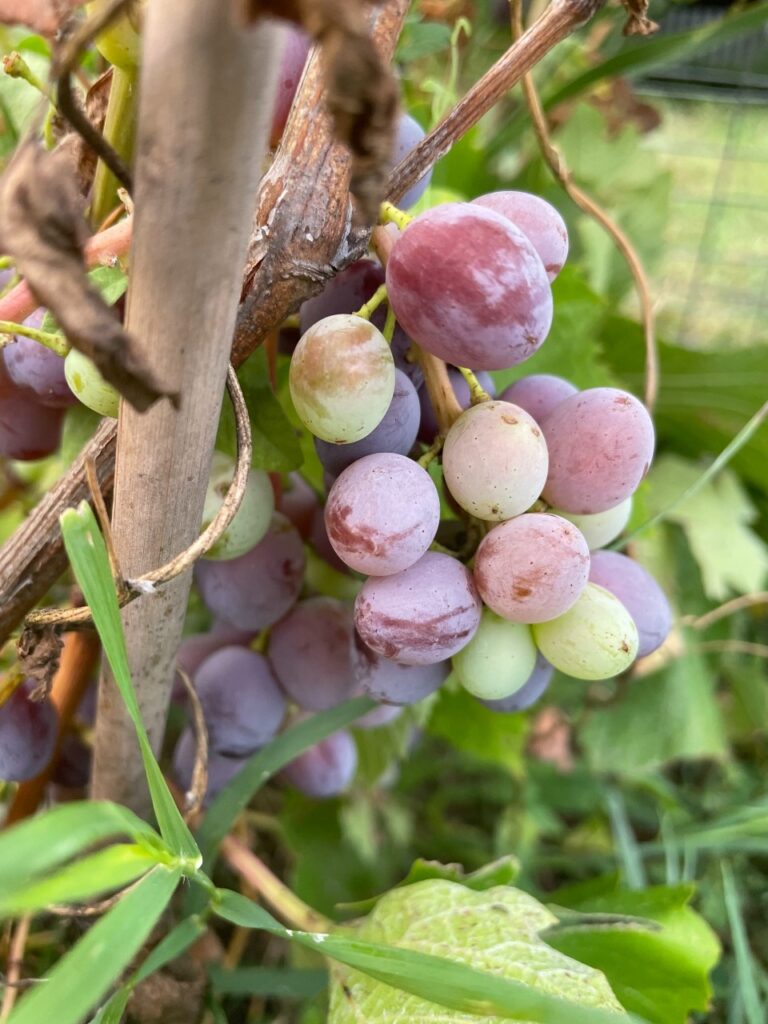 Ever trying parking a tiny house outside a ground-floor apartment? Ill-advised. Tiny houses require space, and space means land. Land means there's a place to grow things, and thanks to the extra time and emotional bandwidth this lifestyle affords me, I'm actually doing so! It's not much, but so far, I have produced a handful of onions, a few strawberries, rhubarb, and approximately seventeen grapes.
Ever trying parking a tiny house outside a ground-floor apartment? Ill-advised. Tiny houses require space, and space means land. Land means there's a place to grow things, and thanks to the extra time and emotional bandwidth this lifestyle affords me, I'm actually doing so! It's not much, but so far, I have produced a handful of onions, a few strawberries, rhubarb, and approximately seventeen grapes.
To illustrate why it's important to supplement big systems, I'd like to now draw on a couple of concepts. The first is the engineering concept of redundancy. According to Wikipedia, this is "the duplication of critical components or functions of a system with the intention of increasing reliability of the system." (Wikipedia: "Redundancy (engineering)" n.d.)
This is precisely what my tiny house garden has created for me. I still shop at grocery stores, but I have also duplicated the critical component of food in my backyard. There is now a safety catch, and it's located a mere fifteen feet from my front door.
Moreover, from this practice of slow living, I get satisfaction from gardening and eating or sharing the food I grew myself.
The other concept I'd like us to consider is that of risk, which can be thought of as a function of probability plus consequence. What is the likelihood that something will go wrong, and how bad will it be?
Um. We all remember 2020, right? Something will go wrong. Eventually. The risk factor, then, is 100%. As far as consequences? Well, if we're talking about something going wrong with a basic need, then the consequence is pretty high.
Does anyone remember the blizzard in Texas earlier this year? I do. Vividly. The tiny house was parked in Austin at the time, and I got snowed in. My water pipes froze, and for nine days, I was using puppy pads because I couldn't flush the toilet. It will be pretty hard to shake the memory of the week. Stores ran out of drinking water, cars were abandoned in icy streets, and we were all melting snow and drinking Powerade to survive. Fortunately, I had propane, but I know people who burned furniture.
Do you remember the rolling blackouts and the headlines about Griddy Electric? How wholesale energy plans backfired, spiking prices and emptying the bank accounts of people on auto-pay? Yeah. That happened.
OK, so, while we all breathe into our paper bags for a minute, let's examine how the tiny house movement helps us out here.
Tiny houses train us to take responsibility for our utilities. Take sewer, for example. Finding tiny house parking with a sewer (or septic!) connection is difficult. This leads many tiny housers to choose self-contained options like composting or incinerating toilets. Not only does this save two gallons of drinking water per flush, but it also reinforces the idea that we are all capable of being responsible for our own... er... poo.
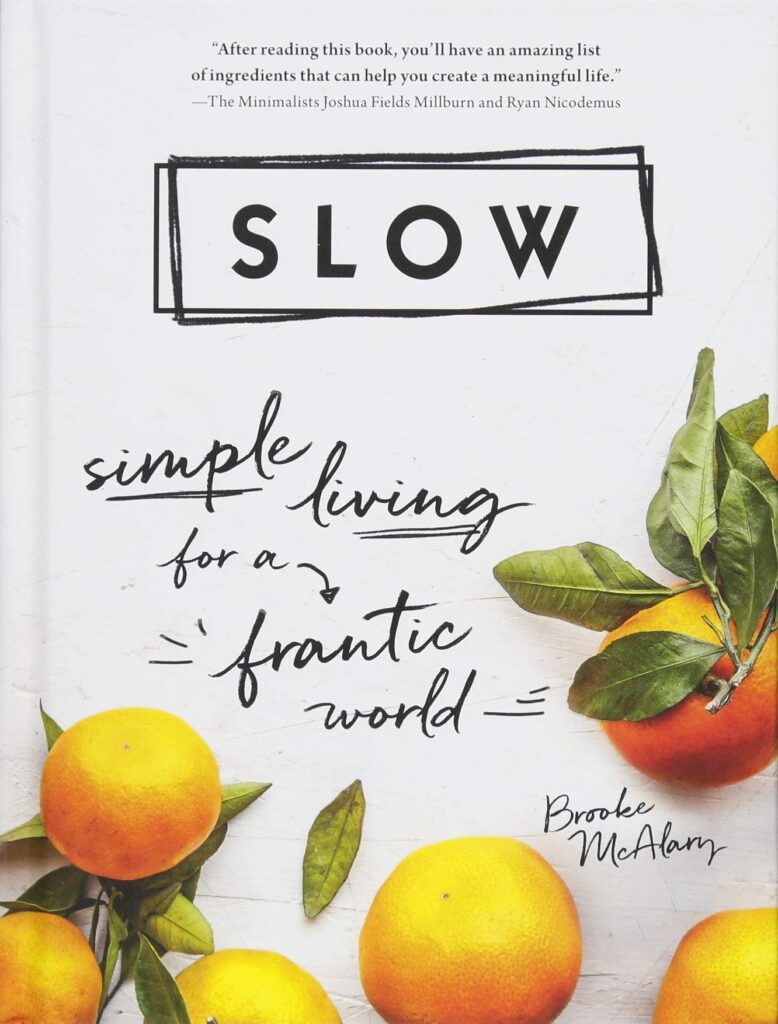 Regular houses aren't known for having water catchment tanks, grey-water-into-the-ground systems, or alternative energy sources- and it's easy to understand why! Putting solar on a 5,000 square foot house could easily be cost-prohibitive. Throwing a couple of panels up on a 250 square foot tiny, however? Now that's more doable!
Regular houses aren't known for having water catchment tanks, grey-water-into-the-ground systems, or alternative energy sources- and it's easy to understand why! Putting solar on a 5,000 square foot house could easily be cost-prohibitive. Throwing a couple of panels up on a 250 square foot tiny, however? Now that's more doable!
Low energy needs, more feasible costs, and the presence of land, are all tiny-house-bonuses that allow us to meet our utility needs more effectively. While considerations are necessary to make these alternatives safe, successful implementation will free us from total grid dependence, give us a sense of empowerment, and reduce our carbon footprints in the process.
We've covered food and utilities, but there is one more piece of the slow-living tiny-house relationship that I think deserves mention, and that is community.
Only two things fit in a tiny house: what you need and what you love. This means you have to get good at relying on your community to borrow those one-off things. It also means that you are consistently purging your tiny house of things that no longer serve you—that's how you give back.
Since going tiny, I have joined a Buy-Nothing Group in my area and participate in it weekly. It's helped me meet so many fun and skilled people in my immediate vicinity.
Remember my experience of losing cell service? An event like that wouldn't be nearly as jarring now that my tiny lifestyle has put me in touch with so many resources. Thanks to habitually interacting with my community, I'm finding out who has wells, generators, or landline phones. I can name someone with an RV, a handful of nurses, and several people who own pickup trucks hefty enough to tow my tiny home.
What if someone in the community needed help? Well, I'm now an excellent candidate to be the linking piece. I know where the resources are, and I know who the people with skills are. Best of all, I can physically go and source these things. No internet, cell service, Amazon delivery, or even money (necessarily) is needed.
Yeah, OK, but I doubt the internet is going to go down.
You know what? Let's hope not. It's not my intention to scare anyone or suggest that we do away with all the technology and infrastructure we've been crafty enough to create. I don't want to get rid of one-click shopping or stop eating pineapples, but I do think we need to be realistic about our dependence on these systems.
We've staked our ability to obtain basic needs on single points of failure.
By adopting a tiny house lifestyle (again, regardless of the actual size of our houses!), we reinvent this narrative.
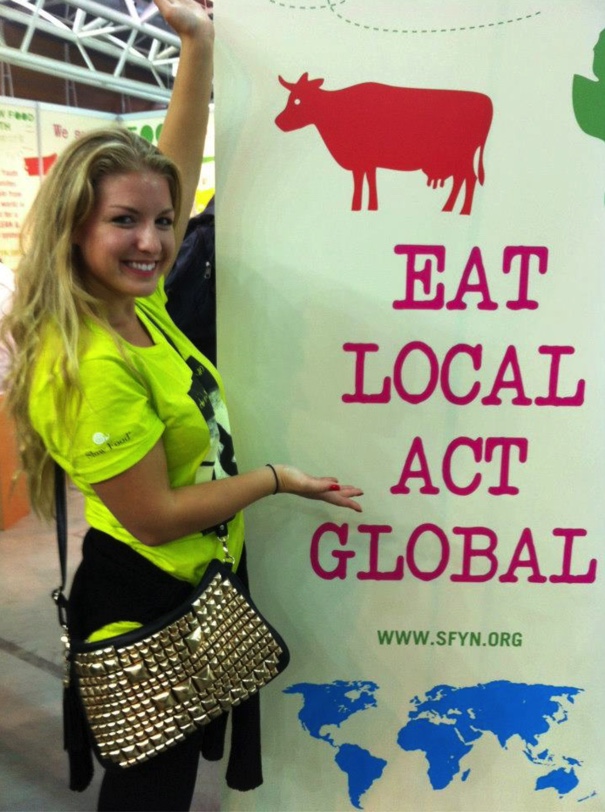 In place of what used to be, we will have created ecosystems of resources that not only protect us but offer us a higher quality of life in the process. These changes lead to a slower pace of life, and I argue that it is in this slower pace of life that magic is found. I moved into a tiny house, and somehow it follows that my body butter is now made by a local woman. This means that even if The Body Shop goes bankrupt or Amazon goes on strike, I will still be moisturized and sparkly for the rapture.
In place of what used to be, we will have created ecosystems of resources that not only protect us but offer us a higher quality of life in the process. These changes lead to a slower pace of life, and I argue that it is in this slower pace of life that magic is found. I moved into a tiny house, and somehow it follows that my body butter is now made by a local woman. This means that even if The Body Shop goes bankrupt or Amazon goes on strike, I will still be moisturized and sparkly for the rapture.
Are my seventeen grapes going to save me if grocery supply chains shut down? Unlikely. I'd probably reach my goal weight and then die; however, the fact remains that what I am really growing is a skill set that will strengthen over time.
Where will my gardening be in five years? What if there are ten tiny houses in my neighborhood filled with people who have similar skill sets?
We don't need to start raising chickens in our high-rise condos, but I do think we would all benefit from going home and sticking a green onion in a glass of water—if only to get the conversation started. Get an at-home hydroponic unit. It will be an art feature, keep the kids busy, clean the air, and keep you alive for an extra fifteen minutes should the world collapse. In the meantime, you can enjoy the slow living that is a candlelit pizza dinner featuring the basil you grew yourself.
Friends, for years, I've meditated on what it was that made my trip to Europe so special, and it was this: for the first time, I was living close to my life.
I have since realized that I don't need to spend thousands of dollars to go to an Italian cooking school to get that feeling. That same experience is available right here in America on a Wednesday night. It wasn't the locale; it was the time with my mom. It wasn't how expensive the cheese was; it was the fact that I knew the cow.
My European slow living adventure taught me what it felt like to walk places instead of rushing and the joy of having time to follow my inspiration. Best of all, it allowed me the luxury of reflection. The pieces, it turns out, are simple.
I propose that the magic we lust after from our cubicles comes from being able to see, taste, touch, smell, hear and live our lives firsthand. Well-being doesn't come from having everything; it comes from having our basic needs met on an exquisite level. Coincidently, achieving this inherently protects us.
Changing our ways will be a slow process. Tiny housers aren't gurus who have it all figured out; rather, we're people who have accidentally stumbled upon an oasis we'd all forgotten was there. We're a test group of humans who are experimenting with our rediscovered talents and resources.
We're individuals who are starting to ask the question: what if instead of bigger, faster, better, and more, the answer was smaller, less, quieter, and more saturated?
A tiny house might facilitate slow living, but please remember that living tiny is not a requirement. Nor is there a "right way" to live more slowly.
I hesitate to "wish" things for others as our circumstances are all so different, but I will say this: I wish you the peace that comes from a walk to work. I wish you the joy elicited by growing a green onion. I wish you the time, money, health, and access to uncover the resources that will keep you safe and help you live your most inspired vibration.
In short: You don't have to live tiny, but I wish you a tiny house life. Coincidently, you just might save the world.
Until next time,
Alaska
*Macy Miller is a total badass and the founder of MiniMotives. If you don't know her, she is 100% worth the Google. Macy and her partner, James, share their tiny house with their two awesome children and a Great Dane named Denver. She neither confirms nor denies collecting antique dolls.
**Or at least I won't eat pineapples. I realize this is an extreme example, but the reality is that even domestic food production has a lot of moving parts.
Alaska is a writer, realtor, and tiny homeowner living in the great state of Colorado. She is the founder of The Tiny House Concierge, a company that provides education and consultation services for people looking to re-think their housing and re-write their lives. You can find her on Instagram: @tinyhouseconcierge.

